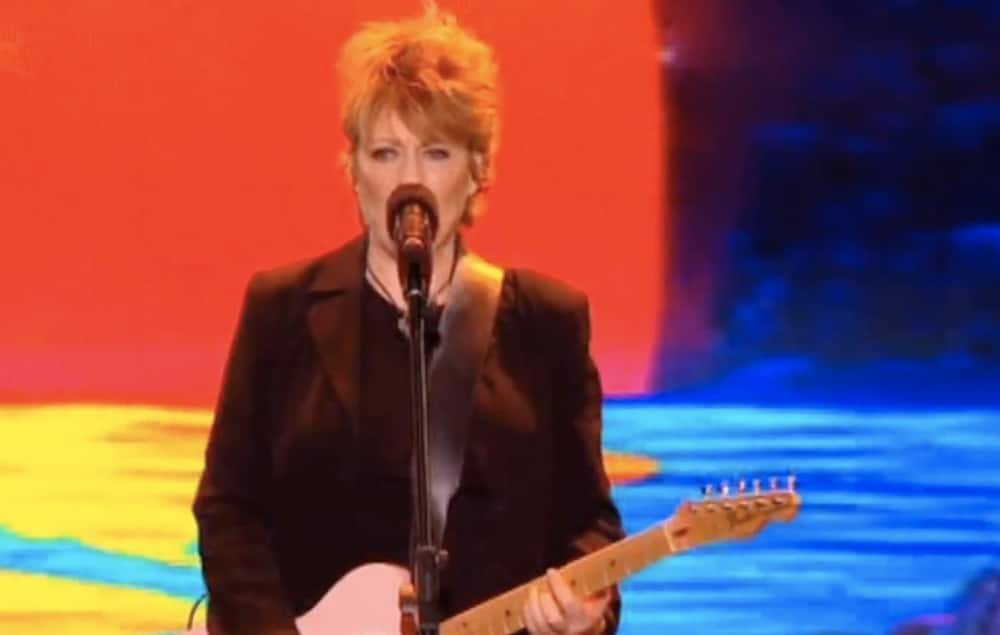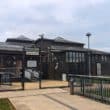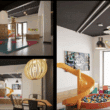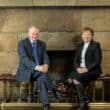
The lead vocalist of 1980s’ pop sensations Katrina and the Waves – one of the UK’s most successful Eurovision Song Contest entries – has confirmed her roots lie firmly in Armagh!
Katrina Leskanish began singing with The Waves in the late 1970s.
And they enjoyed a string of hits during the decade that fashion forgot, chalking up anthemic recordings like Walking on Sunshine, Sun Street and Going Down to Liverpool.
And speaking of Liverpool, as Merseyside becomes a magnet for pop addicts from across Europe and beyond on Saturday week, as it hosts the Eurovision grand final, Katrina has been looking back at her own time in the competition and her shock at actually winning!
Love Shine a Light became the UK’s fifth winning entry in 1997, when it beat second-placed Ireland, who were hosting the final, by what was a record margin – at that time – of 70 points. It was also the greatest commercially, reaching number three in the UK charts and becoming a huge hit right across Europe.
As Eurovision fever peaks at present, Katrina has been looking back on her success with BBC weatherman and huge Song Contest fan Barra Best and former winner Niamh Kavanagh.
In a special podcast for BBC Sounds ‘Eurovision: This is Belfast Calling’, the ginger duo get the party started ahead of this year’s competition in Liverpool – and build up a case as to why Belfast should be the host city the next time Eurovision returns to these islands!
Niamh also reflects on life 30 years on from her own big win in Millstreet, County Cork, when In Your Eyes was the song everyone wanted to hear.
And the podcast – ‘Eurovision: This is Belfast Calling’ – also sees the hosts chat with Katrina and really get the Eurovision adrenalin pumping.
It is during the presentation that Katrina, who was born in Kansas, confirms her Armagh connection.
The 63-year-old tells how her grandfather came from Armagh, the family moving to put down roots in the United States.
“It’s a long history of folks that decided to leave in 1860 and ended up in Chicago. And then from Chicago, there was the huge fire and so all my people ended up in Kansas, but there’s an awful lot of Irish people in Kansas. And obviously in Illinois, where Chicago is,” Kathrina told Barra and Niamh.
There’s not a lot of Leskanichs around these parts, truth be told.
So does Katrina know the local connection, her family name perchance?
“It’s O’Neill? It’s O’Neil with one L. I don’t know,” she replies. “I think they got lazy at Ellis Island. O’Neil, ‘yeah, get through, yeah one L is fine. We don’t want to waste any letters on this family’.”
Her Armagh connections meant that Katrina was a fine candidate to represent the UK.
And her success – and the memories – will stay with her forever.
“It was something that was in Dublin because there was just this total sense of it being a party, kind of light hearted. I mean, I often say to people compared to the way Eurovision is now it was almost like a barn dance because there were so few people there. And it was just kind of fun,” she recalls.
“There were 24 contestants, we all knew each other. We all got along. It was very unusual that we were genuinely rooting for each other. I mean, especially as I’ve already been told the UK could never win. So I set my sights very low. My expectations were to be last, bottom half at the best, and to just do it and have a good time and get through it.
“All I’m hearing from everybody is don’t bother getting too excited even though the points were coming in at a pretty healthy rate. People were saying, ‘Well, don’t get excited, We couldn’t possibly win’, and I said, ‘Well, why don’t you just pass that champagne over here? I mean, we may as well celebrate that we got through it and we’re done with it’.
“And by that time the votes came in. And you know, what an excruciating process that is. By the end I was 300 sheets to the wind and Ronan Keating came over, put his hand on my shoulder and he said, ‘Go on love. you got to do it again’, and I was like, ‘That’s good. that’s good’. ‘No, you got to go now and do the song again’.”
It was, said Katrina, a mess, with lyrics missed but nobody remembers that!
But it was the best time, the best experience and, through this podcast, it’s clear to see why the Eurovision Song Contest has endured and is just as appealing now as it was when it began many years ago!
Listen to the full podcast here.






